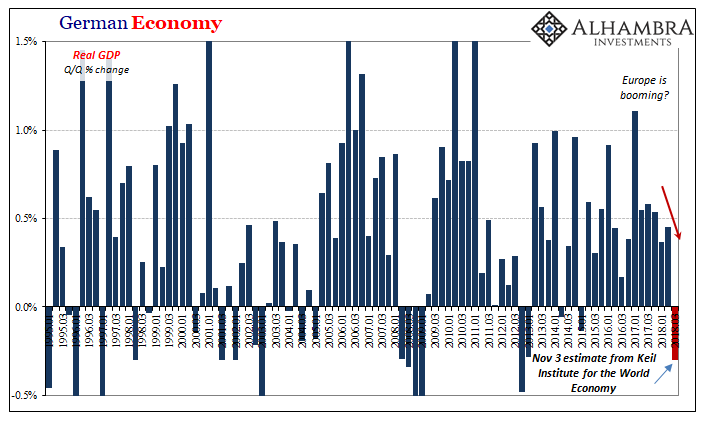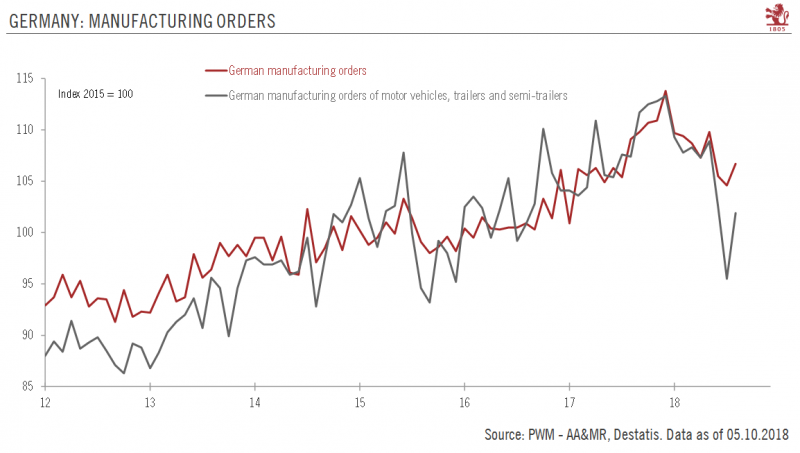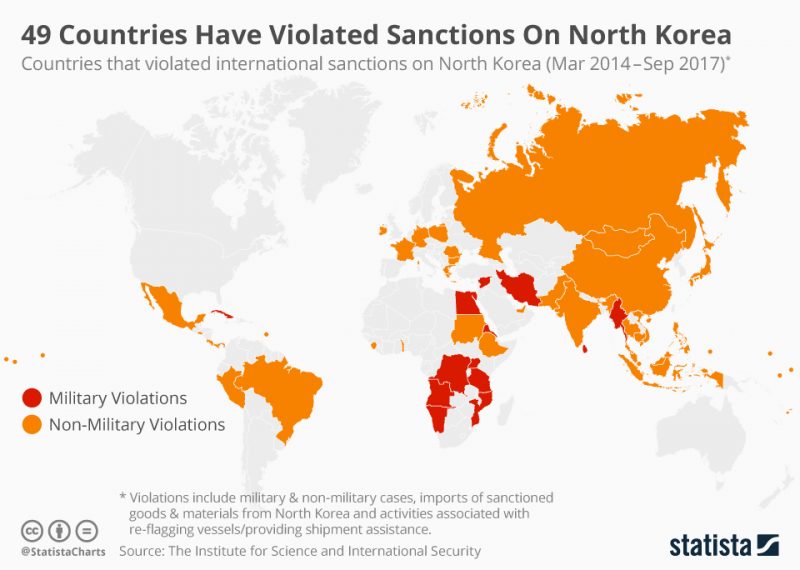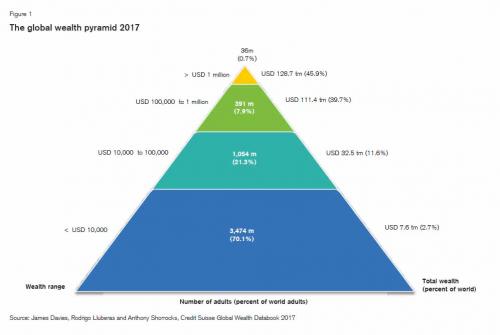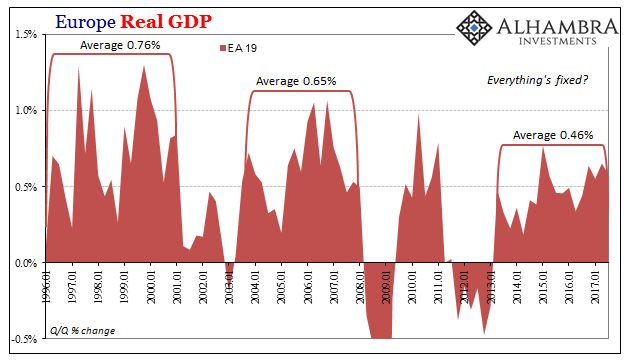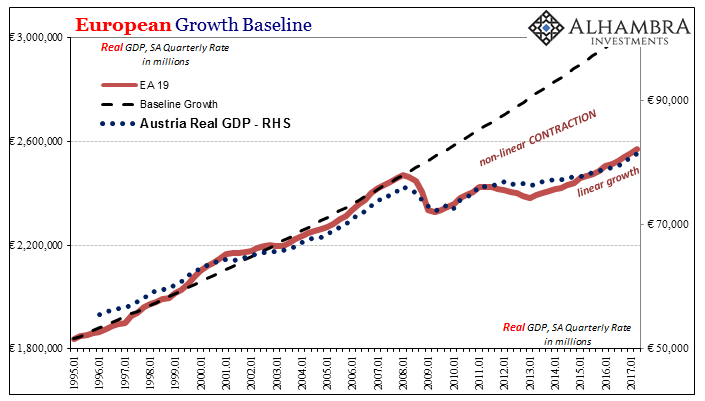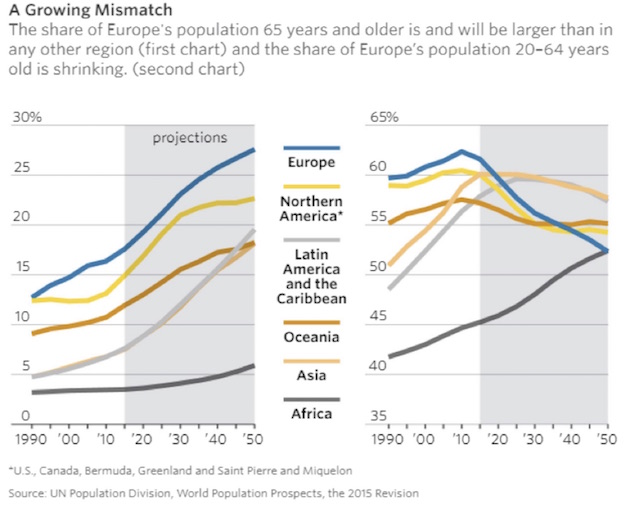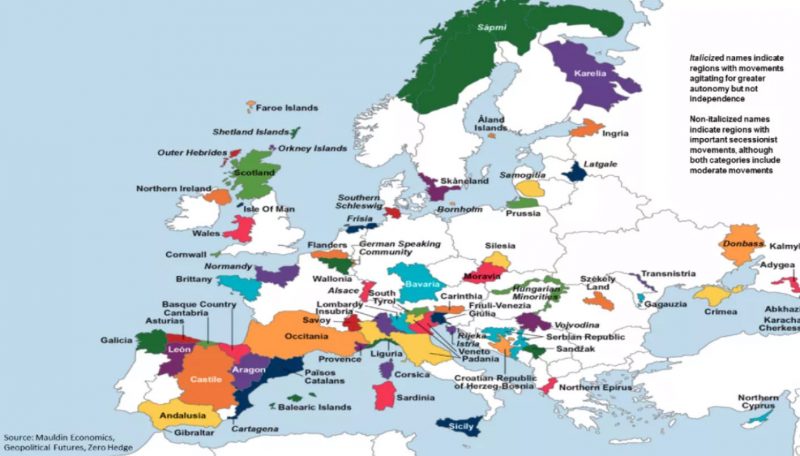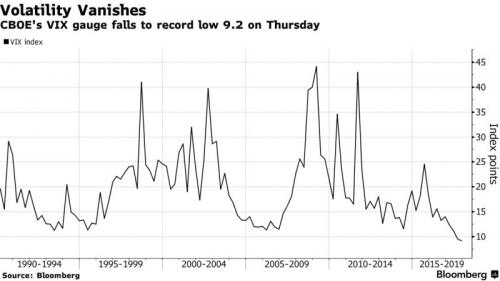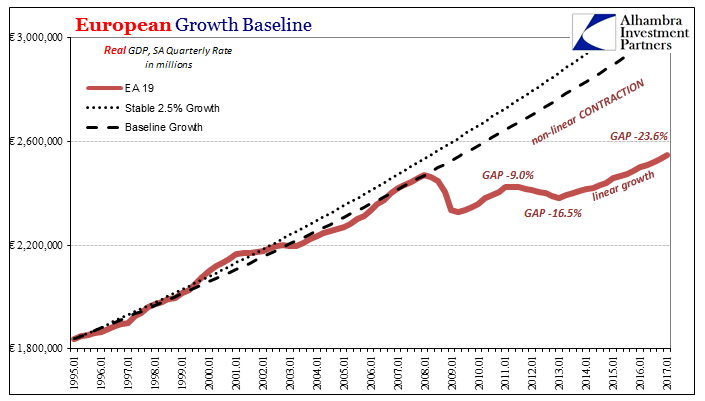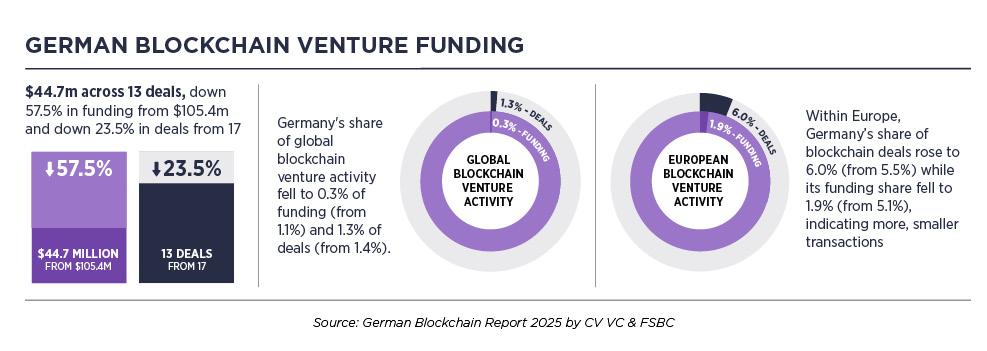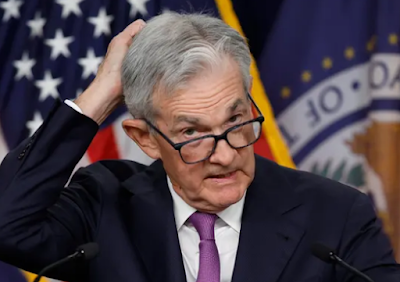Tag Archive: Germany
Harmful Modern Myths And Legends
Loreley Rock near Sankt Goarshausen sits at a narrow curve on the Rhine River in Germany. The shape of the bluff produces a faint echo in the wind, supposedly the last whispers of a beautiful maiden who threw herself from it in despair once spurned by her paramour. She was transformed into a siren, legend says, a tantalizing wail which cries out and lures fishermen and tradesmen on the great river to their death.
Read More »
Read More »
German September PMIs surprisingly weak
Recent German soft and hard data in the manufacturing sector has been surprisingly weak. Data released today showed that the final manufacturing PMI fell to 53.7 in September, from 55.9 in August. Factory orders rose by 2.0% month-on-month (m-o-m) in August, having contracted for six out of the seven previous months.
Read More »
Read More »
FX Weekly Preview: Next Week’s Drivers
It is a testament to the Federal Reserves communication and the evolution of investors' understanding that we can say that the rate hike that the central bank will deliver is not as important as what it says. A rate hike is a foregone conclusion. According to the CME's model, there is about an 85% chance of December hike discounted as well.
Read More »
Read More »
Merkel, European Autonomy, and the ECB
Merkel has again shown herself to be more wily than most. While pundits, investors, and politicians anticipated she would push hard for a German to replace Draghi as ECB President when his term ends next October. After all, it is German's turn at the helm, and its interests were ridden roughshod over by the extraordinary and prolonged monetary policy.
Read More »
Read More »
Watching Imports
The US trade deficit, a sensitive political topic these days, declined sharply in March. It had expanded significantly (more deficit) in January and February, reaching nearly -$76 billion (seasonally adjusted) in the latter month, before posting -$68 billion in the latest figures. Exports rose while imports fell in March, making for the largest single month change in the trade condition in many years.
Read More »
Read More »
FX Weekly Preview: Recovering from Too Much of a Good Thing?
Too much of a good thing is bad. That, in a nutshell, is an important insight that Hyman Minsky offered about the financial sector, but has broader application. The low volatility that has been a characteristic of the capital markets for the past few years spurred financial innovation to profit from it.
Read More »
Read More »
FX Daily, February 06: Recovering US Equities Puts Floor Under Europe after Asia Tanks
After the dramatic fall in US equities, Asian equities followed suit. The MSCI Asia Pacific Index fell 3.4% following Monday's slide of 1.7%. European bourses gapped lower and spent most of the morning moving higher, though large gaps remain. At its worst, the Dow Jones Stoxx 600 was off about 3.3%, and at the time of this writing, it is half as much. US equities initially extended yesterday's losses, but the S&P 500 has turned higher in the...
Read More »
Read More »
FX Weekly Preview: Drivers and Views
It is not easy to recall another week in which there were so many potential changes to the broad investment climate. The relatively light economic calendar in the week ahead may allow investors to continue to ruminate about some of those developments. Here we provide thumbnail assessments of the main drivers.
Read More »
Read More »
49 Countries Have Violated Sanctions On North Korea
A new report from the Institute for Science and International Security has found that 49 countries violated sanctions on North Korea to varying degrees between March 2014 and September 2017. 13 governments including Cuba, Egypt, Iran and Syria were involved in military violations, which as Statista's Martin Armstrong notes, includes either receiving military training from North Korea or being involved in the import and export of military equipment.
Read More »
Read More »
German Politics: What’s Next?
Coalition talks will resume in the coming days, and failing this a minority government is more likely than new elections. The is a general agreement among the political elites, and a hubris of small differences. The rate differentials and cross currency swaps show the incentive structure for holding dollars is increasing.
Read More »
Read More »
For The First Time Ever, The “1 percent” Own More Than Half The World’s Wealth: The Stunning Chart
Today Credit Suisse released its latest annual global wealth report, which traditionally lays out what has become the single biggest reason for the recent "anti-establishment" revulsion: an unprecedented concentration of wealth among a handful of people, as shown in Swiss bank's infamous global wealth pyramid, an arrangement which as observed by the "shocking" political backlash of the past year, suggests that the lower 'levels' of the pyramid are...
Read More »
Read More »
Europe Is Booming, Except It’s Not
European GDP rose 0.6% quarter-over-quarter in Q3 2017, the eighteenth consecutive increase for the Continental (EA 19) economy. That latter result is being heralded as some sort of achievement, though the 0.6% is also to a lesser degree. The truth is that neither is meaningful, and that Europe’s economy continues toward instead the abyss.
Read More »
Read More »
If American Federalism Were Like Swiss Federalism, There Would Be 1,300 States
In a recent interview with Mises Weekends, Claudio Grass examined some of the advantages of the Swiss political system, and how highly decentralized politics can bring with it great economic prosperity, more political stability, and a greater respect for property rights. Since the Swiss political system of federalism is itself partially inspired by 19th-century American federalism, the average American can usually imagine in broad terms what the...
Read More »
Read More »
Distinct Lack of Good Faith, Part ??
It was a busy weekend in retrospect, starting with Janet Yellen and other central bankers uncomfortably facing a global media that has become (for once) increasingly unconvinced. Reporters, really, don’t have much choice. The Federal Reserve Chairman might not be aware of just how much she has used the “transitory” qualifier since 2015, but others can’t be helped from noticing.
Read More »
Read More »
“This May Be The End Of Europe As We Know It”: The Pension Storm Is Coming
I’ve written a lot about US public pension funds lately. Many of them are underfunded and will never be able to pay workers the promised benefits - at least without dumping a huge and unwelcome bill on taxpayers. And since taxpayers are generally voters, it’s not at all clear they will pay that bill. Readers outside the US might have felt safe reading those stories. There go those Americans again… However, if you live outside the US, your country...
Read More »
Read More »
Why Small States Are Better
Andreas Marquart and Philipp Bagus (see their mises.org author pages here and here) were recently interviewed about their new book by the Austrian Economics Center. Unfortunately for English-language readers, the book is only available in German. Nevertheless, the interview offers some valuable insights.
Read More »
Read More »
“This Is A Crisis Greater Than Any Government Can Handle”: The $400 Trillion Global Retirement Gap
Today we’ll continue to size up the bull market in governmental promises. As we do so, keep an old trader’s slogan in mind: “That which cannot go on forever, won’t.” Or we could say it differently: An unsustainable trend must eventually stop. Lately I have focused on the trend in US public pension funds, many of which are woefully underfunded and will never be able to pay workers the promised benefits, at least without dumping a huge and unwelcome...
Read More »
Read More »
Eurozone: Distinct Lack of Good Faith
The erosion of social order in any historical or geographic context is gradual; until it isn’t. Germany has always followed a keen sense of this process, having experienced it to every possible extreme between the World Wars. Hyperinflationary collapse doesn’t happen overnight; it took three years for the Weimar mark to disintegrate, and then Weimar Germany. Even Nazism wasn’t all it once. What was required was continued denial especially on the...
Read More »
Read More »
Here Are The Cities Of The World Where “The Rent Is Too Damn High”
In ancient times, like as far back as the 1990s, housing prices grew roughly inline with inflation rates because they were generally set by supply and demand forces determined by a market where buyers mostly just bought houses so they could live in them. Back in those ancient days, a more practical group of world citizens saw their homes as a place to raise a family rather that just another asset class that should be day traded to satisfy their...
Read More »
Read More »









